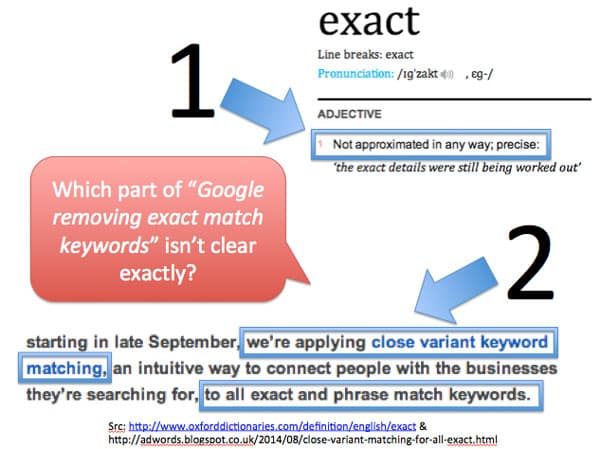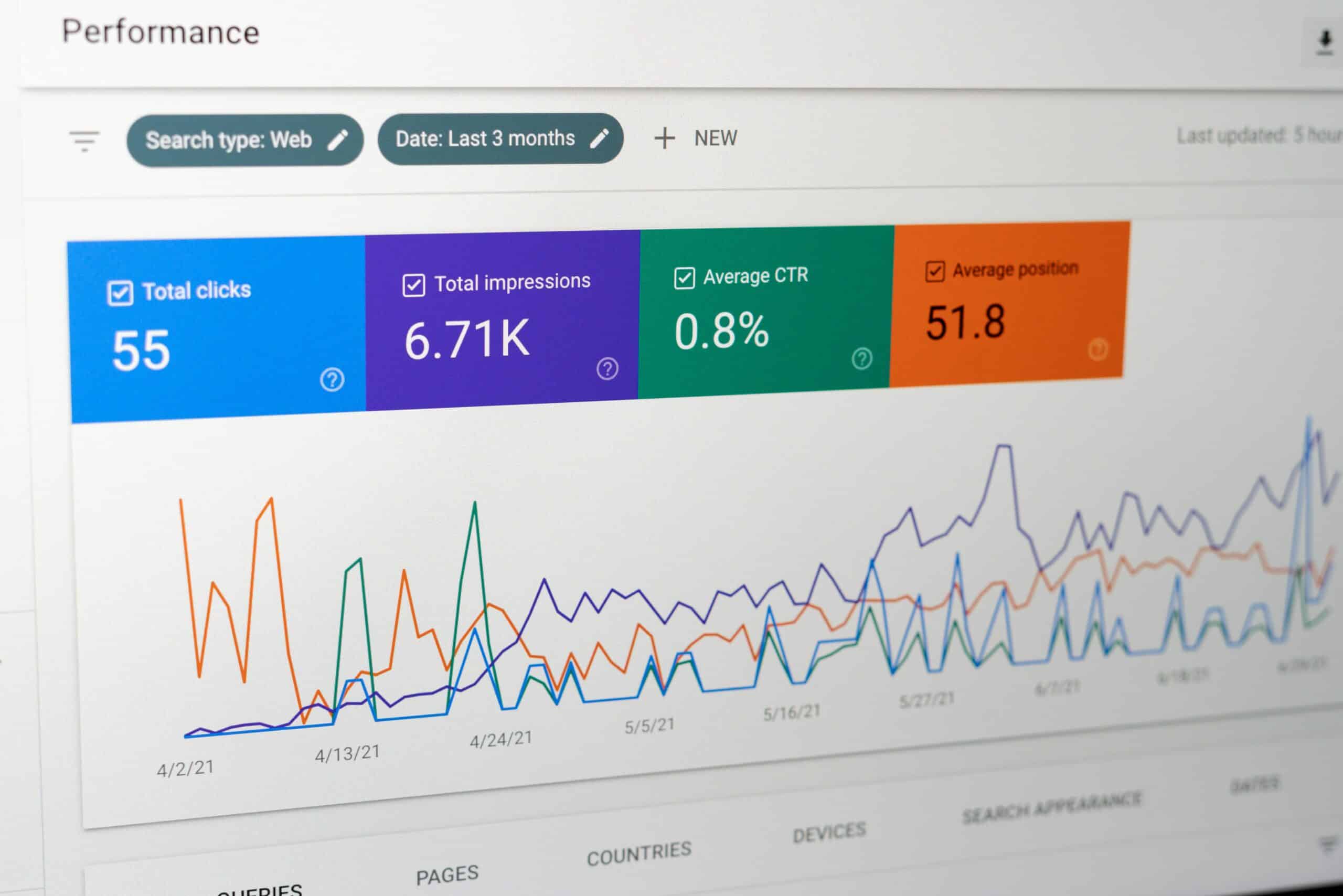UPDATE: Enough people have argued that Google aren’t removing Exact Match Keywords, so I’ve put together possibly the least attractive infographic you’ll see this year:

Original post starts here:
Google announced late yesterday that starting September, advertisers on adwords will no longer be able to use Exact Match keywords to drive their ad spend.
 For non Adwords advertisers, exact match has always been the mainstay of a well optimised large account. They were the only keyword type that allowed you to specify exactly what keyword you wanted an ad to appear for, with a specific bid to that keyword – therefore you could bid separately plurals, mis-spellings and so on.
For non Adwords advertisers, exact match has always been the mainstay of a well optimised large account. They were the only keyword type that allowed you to specify exactly what keyword you wanted an ad to appear for, with a specific bid to that keyword – therefore you could bid separately plurals, mis-spellings and so on.
The positives:
Google’s intent is clear, 95%+ of unique advertisers most likely self administer small campaigns for their businesses, and online marketing is unlikely to be their focus or their expertise. A strong argument can be made that these advertisers may stand to gain more traffic at a reasonable quality level from these changes, for example:
- Hairdresser in Rochester
- Hairdressers in Rochester
- Hairdressing in Rochester
- Rochester Hairdresser
- Rochester Hairdressers
- Rochester Hardressers*
*intentional mis-spell
Come September, these could all be triggered as close matches from just one keyword in your Adwords account, this will result in more traffic which is likely to be relevant to your small business.
The negatives:
If you have spent time and effort already, optimising your Adwords account to include all possible variants that you were interested in, and have set specific bid prices for each one, then that work will soon become irrelevant and the keyword/ad combination with the highest quality score/ad rank for the search query will now be triggered, regardless of whether you’ve elected to have a specific combination show for a keyword phrase.
This will negatively impact advertisers who might have different bidding strategies and ad copy for plural search terms which may have yielded a lower conversion rate but higher basket size.
What to watch out for:
There are plenty of potential terms which will fall foul of the increased loosening in targeting, plural only nouns with a unique meaning in the singular form (bear with me here) specifically need to be considered, as these will throw phrase matching keywords into impressions that aren’t relevant and will therefore reduce CTR and negatively impact your quality score (hence, increasing bid price).
Examples are:
- Arm / Arms
- Ash / Ashes
- Custom / Customs
- Fund / Funds
- Glass / Glasses
- Good / Goods
- Letter / Letters
- Premise / Premises
- Tight / Tights
To illustrate, someone searching for “Business Premise” or “Business Premises” are looking for entirely different things, but if you happen to have either of these in your adwords account, your ad will soon be triggered regardless of user intent.
Consider an advertiser trying to sell “Stained Glass”, who now has to compete in Adwords against another advertiser bidding on “Glasses Stain” to sell cleaning products!
What can you do?
The quick answer for now would be to consider every term you’re bidding on, what the alternatives would be and then add those as a negative keyword. According to Google, for now at least negative exact match keywords remain exactly that – exact match.


